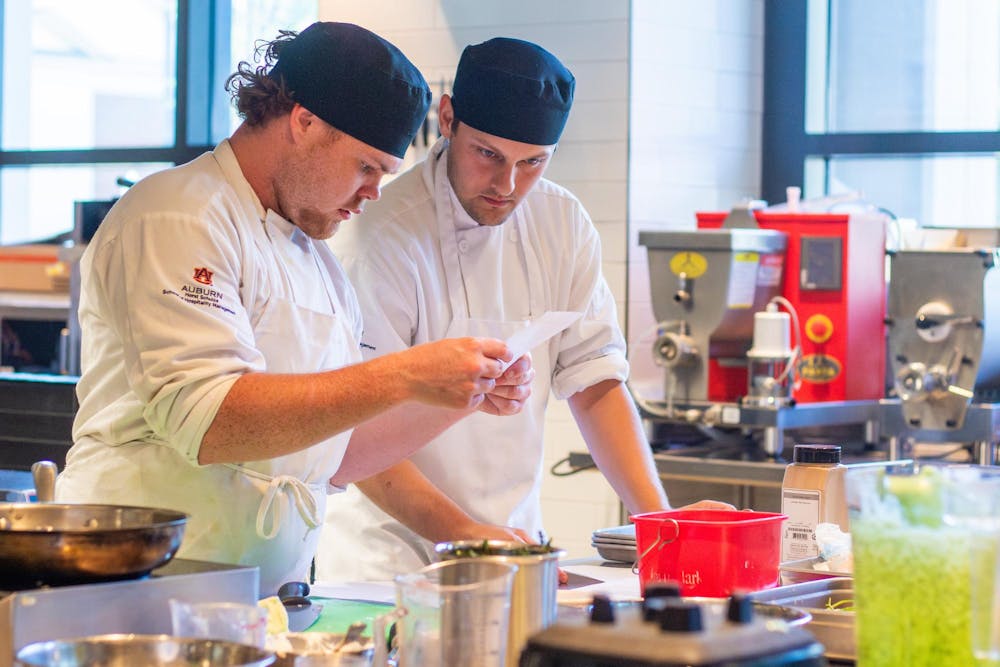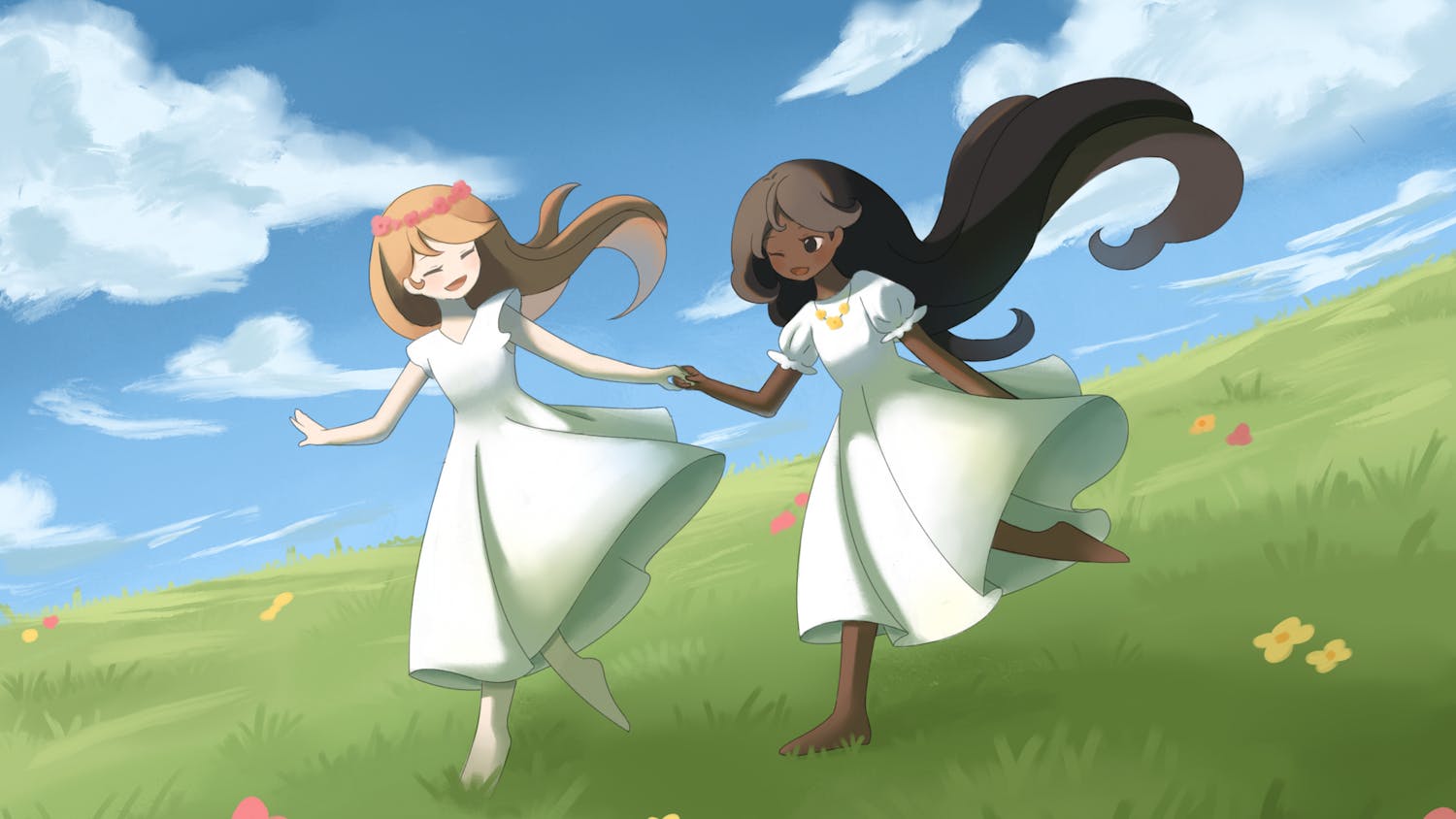Inside Auburn’s Tony and Libby Rane Culinary Science Center lies a culinary arts program eager to blend food with science.
Chef Mark Traynor, associate professor and director of culinary science, among others, is renowned for redefining the way the Auburn culinary arts program runs, from gathering experience for students to teaching them about the entire lifecycle of food.

A lab student works with a fish at the Tony & Libba Rane Culinary Science Center on Sept. 24, 2025.
For culinary students, Auburn makes it easy to get experience. Whether it’s making pastries or coffees for Thrive Coffee, cooking or serving at the Rane Center’s 1856 upscale teaching restaurant or getting hands-on experience with the Laurel Hotel, every hospitality student has the opportunity to dive deeper into their major. What makes it even more convenient is that every opportunity lies within just one building, helping each student fulfill his or her specific number of work hours.
What makes the culinary arts program specifically different from other programs is the holistic view of food. For example, the students do not merely study the cooking and presentation of food; they also study the growing, harvesting and disposal of food.
Chefs ensure students understand and support farmers because of their crucial role in the food cycle. Students also partner with the College of Agriculture’s horticulture department to learn how produce is grown. In addition to the beginnings of the food process, culinary students are also taught the business side of the field to understand the purchasing of food as well as the business of restaurants. Many students have a minor in business to understand the “why” behind what they do.

Director of Culinary Science Mark Traynor instructs a student in the Tony & Libba Rane Culinary Science Center on Sept. 24, 2025.
"When [I] take these classes, I’m doing culinary things, but I’m also learning how to work the front-of-house and how to purchase and receive things with supply chain," said Mae Martin, sophomore in hospitality. "I’m learning a lot about the agriculture department and the unique partnership we have with them.”
Once the students learn how to cook and prepare their food for a proper presentation, they must find a way to not let it go to waste. The chefs have two methods: compost it for soil or send it to Auburn’s Campus Kitchen Project.
When the students compost the food waste for soil, it may take about six months to fully be used. These students then put the compost to use on the rooftop of the Laurel Hotel which houses fruits, vegetables, herbs and flowers. Culinary students also use their prepared compost on the second floor of the Rane Center, which houses produce too.
When food is sent to the Campus Kitchen Project, student volunteers package and serve food to those in need, reducing waste and feeding the hungry.
Science is continuously applied, as culinary students learn about the entire lifecycle of food. Technology and engineering are involved in labs for brewing science, distilled spirits and culinary exhibitions. Students from biosystems engineering create efficient rooftop irrigation systems, troubleshoot drainage issues in the rooftop growing substrate and develop solutions for the environmental challenges. Culinary students also collaborate with the agriculture and horticulture students to grow produce efficiently and partner with hospitality students to harvest.
Lastly, mathematics is involved in the culinary arts program as students design menu pricing options, using planning, ordering, cost control and financial data.
Culinary arts at Auburn University is more than just cooking and serving; this program includes science, technology, engineering and mathematics, as students study each aspect of the food lifecycle.
Do you like this story? The Plainsman doesn't accept money from tuition or student fees, and we don't charge a subscription fee. But you can donate to support The Plainsman.
Betsy Nearn, junior majoring in public relations, is from Memphis, Tennessee. She has been with The Auburn Plainsman since the fall of 2025.





